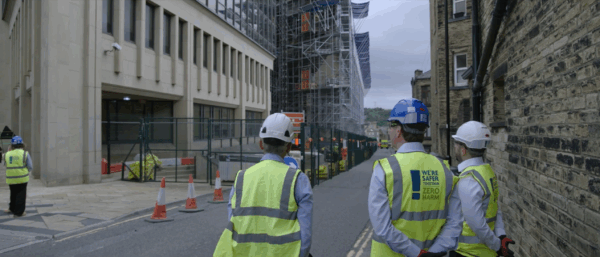We reflect on some of the key announcements from Chancellor Rishi Sunak’s announcements in the Government’s Summer Financial Statement
Who would be Rishi Sunak? A clearly able and ambitious man appointed to one of the great offices of state on the metaphorical eve of a crisis that was unprecedented and appeared with little or no warning.
Of course, weathering economic storms certainly comes in the Chancellor of the Exchequer job description – just ask Dennis Healy, Norman Lamont or Alistair Darling.
But the challenges facing the current Chancellor are very different in many ways to those faced by his predecessors and as such the route to recovery may need to be very different as well. Up to now it is a test that the Chancellor has risen to admirably.
The measures that were announced at the beginning of the lockdown in March the employee furlough scheme and the deferring of VAT and tax bills recognised the importance of cash flow to business and immediately faced into the heart of the problem.
The furlough scheme alone has been used by more than a million companies including Wates with more than 9 million employees being furloughed at a cost of almost £30bn to the exchequer.
It was a decisive move at a moment of national crisis that has sustained UK plc through what we must all hope is the worst of the Covid-19 pandemic and his focus has now rightly moved to kickstarting the economy.
A step in the right direction
The announcements made today in the summer economic update are certainly a step in the right direction and there are a number of initiatives that undoubtedly have the potential to make a real difference.
The ‘Kickstarter’ initiatives that include the funding of six-month job placements for 350,000 16-25-year-olds will be hugely important for a group that has been disproportionately affected by the recent economic downturn.
Next week is World Youth Skills Day (15 July), a date when businesses celebrate the contribution that young people make to industry but also recognise that more needs to be done to support young people gain those critical skills that they need to forge successful careers.
Supporting young people through apprenticeships and recognising their importance to the long-term success of Wates is at the heart of our business strategy and so it is important that this latest government initiative focuses on meaningful opportunities that help fill the skills gap that still remains in ours and many other industries.
The housing industry is also fundamental to the health of the UK economy but for myriad reasons, we are still not even close to delivering the kind of volume that this country needs, from both a social and economic perspective.
A cut in stamp duty will certainly provide fresh confidence to a depressed housing market but this must run in parallel with other initiatives such as planning reform if the housebuilding sector, which is directly responsible for more than 750,000 jobs, is going to be able to fulfil the Government’s own ‘build, build, build’ mantra.
The importance of sustainability
At the heart of the Government’s announcement today was sustainability and a recognition that not only is there huge opportunity for growth in the ‘green’ sector but that more also needs to be done if it is going to hit its target of reducing carbon emissions by 80 per cent by 2050.
It is a commitment that resonates strongly with Wates as a business we design, develop, invest, deliver and maintain and so we have the opportunity to positively influence carbon reduction across the entire life cycle of a building, a responsibility enshrined in our recently published environmental strategy.
Scale of the challenge
However, the big challenge for the Government in this area is one of ambition.
The numbers announced today are not insignificant and an accelerated £5bn of investment in infrastructure and another £3bn investment in supporting energy efficiency in homes and public buildings undoubtedly has the potential to create thousands of new jobs.
Nevertheless, while the intent is unquestionably sound, the quantum impact may not be as transformational as the Government may hope.
Today’s announcements are an important first step in kick-starting the UK economy but what we need next is a long term strategy that recognises and then tackles the major challenges facing the UK in the years ahead such as the levelling up of the regions, population growth and the climate emergency, not to mention the impact of Brexit.
It is a huge job facing the Government and its Chancellor, one that will take real vision and no small amount of courage, but the long-term future of the UK economy depends on it. Let’s hope that Rushi Sunak is up for the challenge but so far so good.





